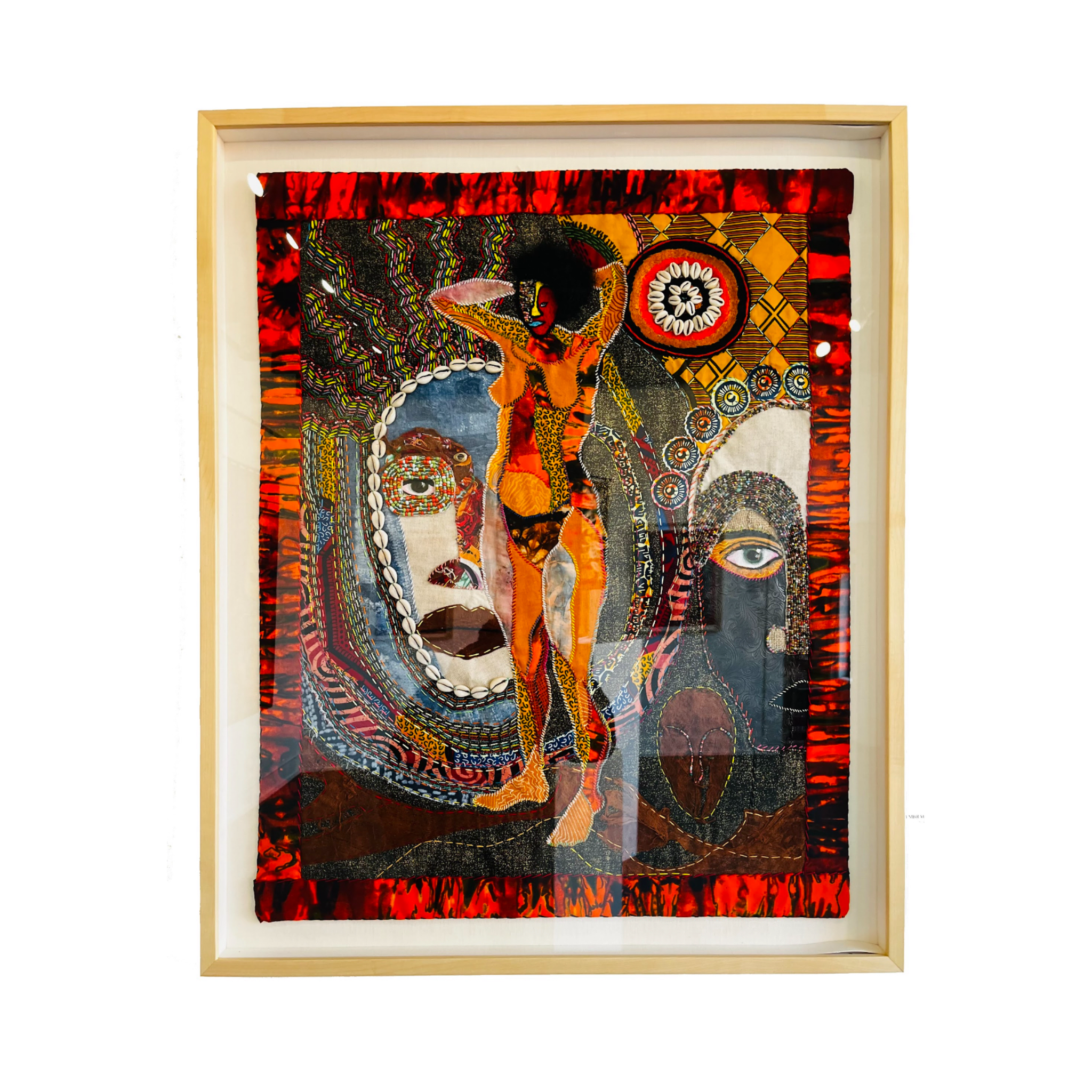 Image 1 of 1
Image 1 of 1


“Embracing Spirits”
2024 Original Artwork by Alice Aida Ayers, Hand-Stitched Fabrics, Mixed Media, 27” X 34”
My first visit to Mangapwani was with a friend and a taxi driver, heading to the slave chamber and freshwater cave—long before it
became a major tourist site. The underground room, carved into coral rock, was damp, broken, and overgrown with moss. Descending
the uneven steps, I felt suffocated in the dark chamber. With my flashlight, I saw moss-covered walls, holes in the stone, and a rusted
piece of metal that I imagined once bound an ankle. Dizzy and nauseous, I rushed outside and vomited. The driver calmly said it was
the shetani—spirits or djinns rooted in Zanzibar’s folklore, said to take human or animal form. Mangapwani, like many villages, blended
Islamic practice with cultural beliefs, and this was my initiation into the place I would call home for the next 18 years, where spirits and
stories would continually shape my life.
2024 Original Artwork by Alice Aida Ayers, Hand-Stitched Fabrics, Mixed Media, 27” X 34”
My first visit to Mangapwani was with a friend and a taxi driver, heading to the slave chamber and freshwater cave—long before it
became a major tourist site. The underground room, carved into coral rock, was damp, broken, and overgrown with moss. Descending
the uneven steps, I felt suffocated in the dark chamber. With my flashlight, I saw moss-covered walls, holes in the stone, and a rusted
piece of metal that I imagined once bound an ankle. Dizzy and nauseous, I rushed outside and vomited. The driver calmly said it was
the shetani—spirits or djinns rooted in Zanzibar’s folklore, said to take human or animal form. Mangapwani, like many villages, blended
Islamic practice with cultural beliefs, and this was my initiation into the place I would call home for the next 18 years, where spirits and
stories would continually shape my life.
